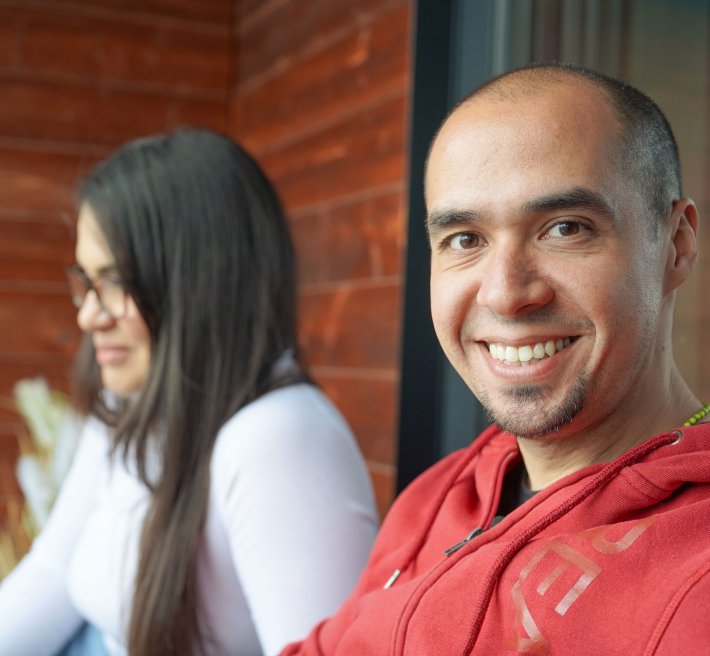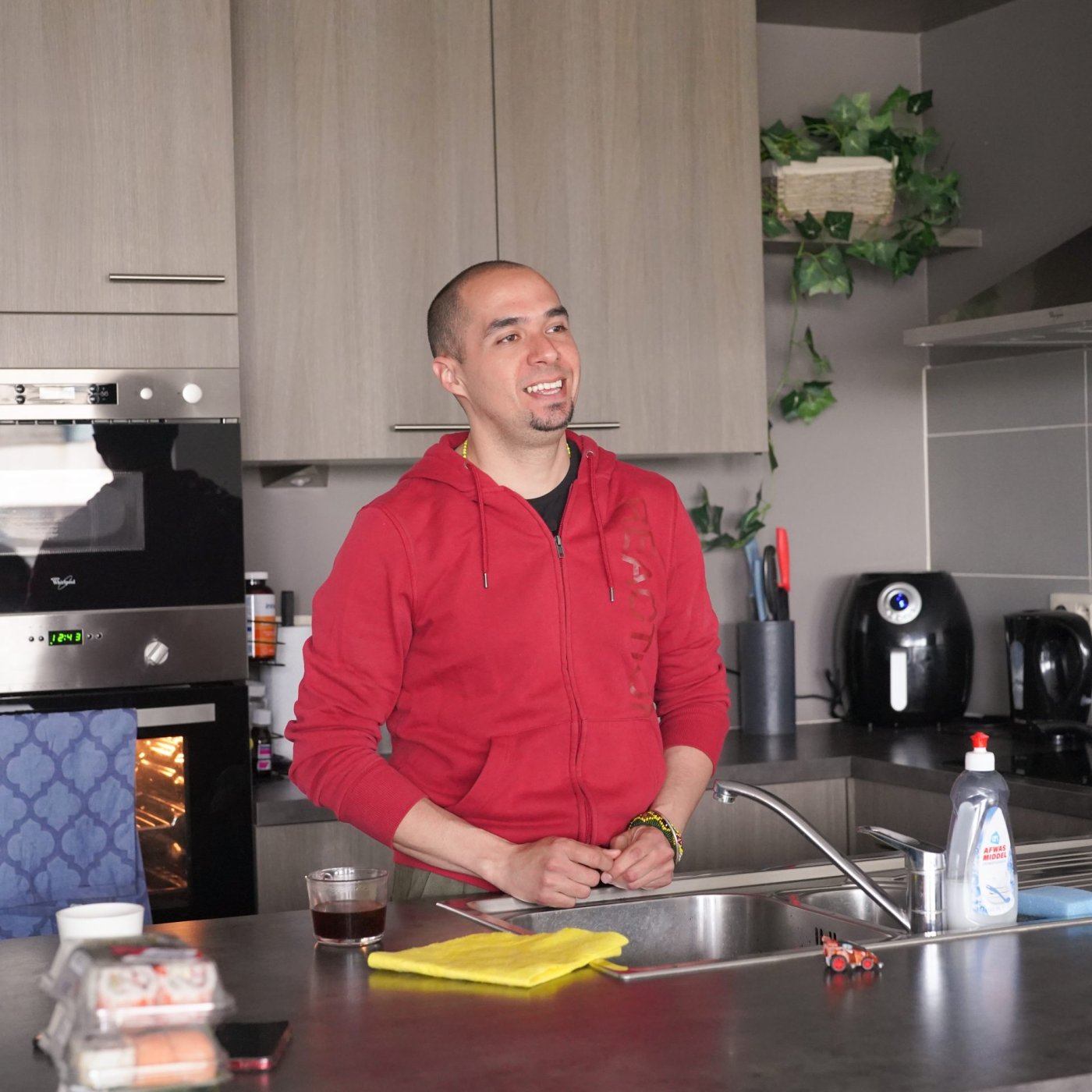Skills for Employment
Yana’s story
Read Yana’s journey that shows the power of work to rebuild a life.

Forced to flee Venezuela, Edgar left behind his home and daughter. Finding safety in Belgium, he reclaimed his career as an educator and started rebuilding his life.
In Venezuela, I had a normal life. I’m a computer guy, at university I studied science. One day my brother, who was a teacher, couldn’t take one of his lessons. So, I stood in as a replacement to help him out. That day I discovered a passion for teaching.
I started a couple of days a week before working up to a full-time job teaching French and Spanish. I loved teaching so much and still do. By teaching, I learned a lot. I was young, around 20 years old, and many of my students were older than me. The opportunity to teach and learn from them was the most amazing thing.
Around 2015 things started to get complicated in Venezuela. Life became very hard. There were many protests and a lot of violence. Armed paramilitaries with bikes would throw gas grenades into demonstrations.
By the time my daughter was born in 2015, it was impossible to go more than 100m from my apartment. The street violence was so intense that the smell of gas and smoke came into my home. Of course, I was afraid. When I looked into the face of my daughter, I could see that if I am going to provide her a better life, I have to do something. I was not a rich person. But I wanted her to have a safe place to live and grow. It was for the safety of my family and specifically my daughter that I realised I had to do something. She moved with her mother to the safety of another city, while I had to leave the country with my mother and brothers. Leaving my daughter was the hardest part.
When I arrived in Belgium, it was tough. I had to adapt and start from zero. I was 33 and a refugee, so not that young. My diploma was not valid in Belgium. I had no papers and no documents. It was a huge challenge. At least I could speak French. The biggest challenge was to regain my status. I needed to find a job, to work and earn money. I was safe, but my daughter was still there and I had to provide something, to send money. I did a lot of things but it took a few years before I got the opportunity to regain my status and a normal life. When you’re a refugee, that label is a big barrier.
The challenge is daily life. Even things that seem superficial. If you don’t have ID, you can’t buy a phone to communicate with your family. When you don’t have the papers or status, you don’t have the right to work. Every day is a new thing you have to do. The challenge is to remain patient and resilient and to not lose that hope that everything will be okay.
Before leaving Venezuela, I didn’t understand the reality of what it means to be a refugee. Many people think refugees are just looking for an easy life. But it’s not a choice. Refugees are not looking for charity, they only want opportunities. It’s not like one day I woke up and thought I would give Belgium a try to see what it’s like to be a refugee. For me, it was just to get back to normality and back to regular life.
The possibility of working with IKEA was the most beautiful surprise I had since arriving in Belgium. Through a programme with IKEA, I had an opportunity to meet so many nice people from so many different countries and different backgrounds. I’ve been with them three years and a half now. I started as a sales co-worker. I had never sold a pencil in my life when I got that opportunity. I was nervous but happy to get a real job, a good job. Step-by-step they helped me fulfil my dream of getting back to teaching. Now, as an LND (learning and development) specialist, I am one of the teachers of IKEA.
For IKEA, my diploma issues are not a big deal. Within the organisation, it’s about who you are and who you can be. They are nice people, working in a nice culture. Even at a social level, when I say I work for IKEA, I get a very positive reaction.

After the rollercoaster I’ve been on, I’m looking forward to being able to settle and enjoy my life. Now I live here with my girlfriend and stepson, my big dream is to physically see my daughter again. Now my daughter is nine and, thanks to my cell phone, I can see her almost every day. But I don’t know what it feels like to hug her or walk her to school. Work has allowed me to regain my place in society. And the chance to do all the things I have missed out on. Helping refugees to integrate is always a win-win relationship. It brings diversity and different ways of seeing things. It can only be positive.
Keep an open mind and realise that other realities and other issues are happening in other countries. Culturally and professionally we want to be a part of the society we are in and we can also bring a lot to it.